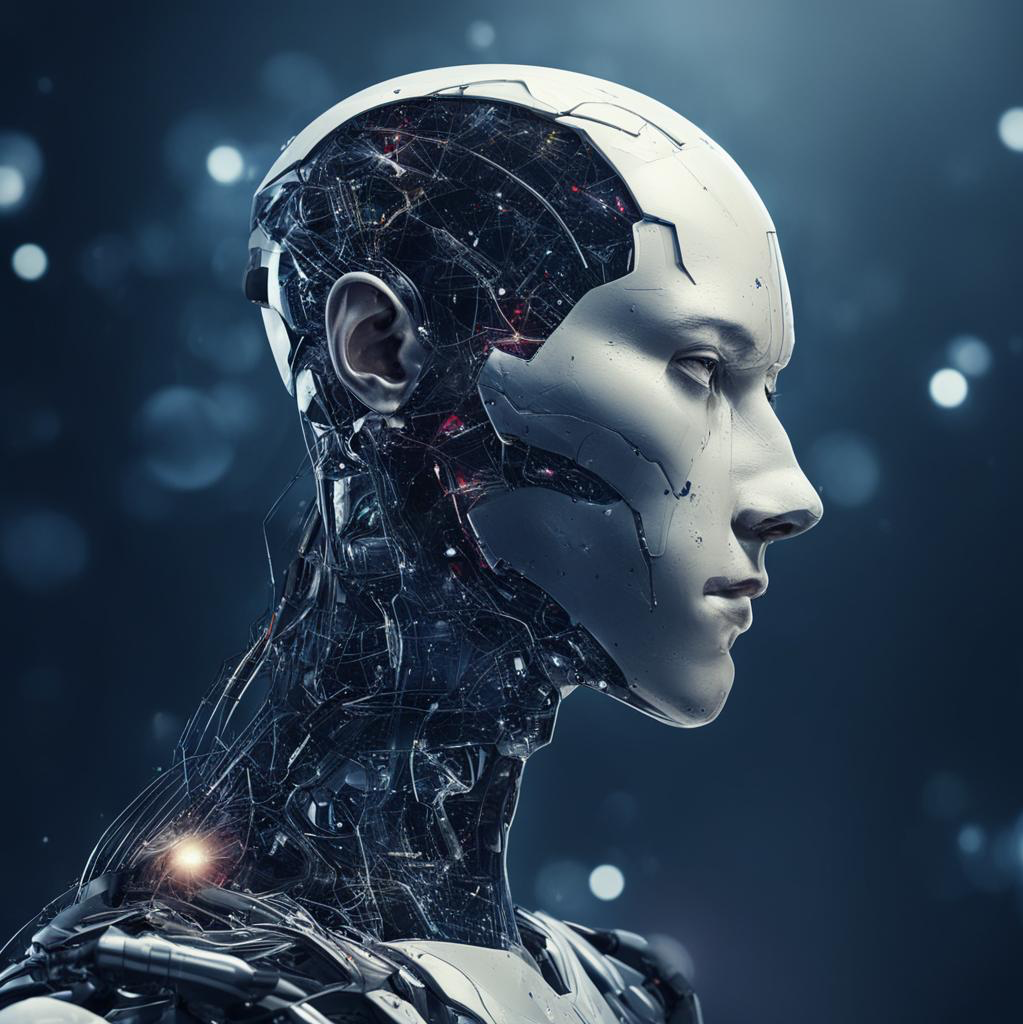Welcome to the future of hospitality! As technology continues to revolutionize every aspect of our lives, it comes as no surprise that the world of hospitality is also experiencing a remarkable transformation. Say hello to Artificial Intelligence (AI), the game-changer that goes beyond traditional guest services and takes customer experience to a whole new level.
Gone are the days when hotels solely relied on human interaction to cater to their guests’ needs. With AI advancements, hotels can now provide personalized and seamless experiences, streamlining operations like never before. From chatbots offering instant assistance to smart room controls adapting to individual preferences, AI has become an indispensable tool in enhancing efficiency while delivering exceptional service.
In this blog post, we will dive into the advantages of implementing AI in the hospitality industry and explore some common applications that have taken guest services by storm. We will also discuss how AI enables personalization and customization for each guest’s unique requirements. But first, let’s unravel why embracing AI is not just an option but a necessity for forward-thinking hoteliers worldwide. So grab your digital key cards because we’re about to embark on an exciting journey into the world of AI in hospitality!
Advantages of Implementing AI in the Hospitality Industry
The implementation of artificial intelligence (AI) in the hospitality industry brings numerous advantages that can greatly enhance guest experiences and streamline operations. By harnessing the power of AI, hotels, resorts, and other accommodation providers can revolutionize their guest services.
One key advantage is improved efficiency. With AI-powered chatbots and virtual assistants, guests can have their queries answered promptly without having to wait for human assistance. This not only saves time but also ensures a seamless check-in process and enhances overall customer satisfaction.
Another benefit is personalized service. Through AI algorithms that analyze guest data, hotels can gain insights into individual preferences and provide tailored recommendations for amenities, dining options, or local attractions. This level of customization creates a more memorable stay for each guest.
AI also offers significant cost savings for hospitality businesses. By automating repetitive tasks such as room service requests or housekeeping schedules, staff members are freed up to focus on delivering exceptional service rather than mundane administrative duties.
Implementing AI technology in security systems can enhance safety measures within hotel premises. Facial recognition software and surveillance cameras equipped with intelligent monitoring capabilities help identify potential threats or suspicious activities in real-time, ensuring the well-being of both guests and staff.
In addition to these advantages, AI facilitates effective revenue management by analyzing market trends and pricing strategies based on demand forecasting models. This enables hotels to optimize rates dynamically to maximize profitability while still offering competitive prices to guests.

Common Applications of AI in Guest Services
AI technology has transformed the way guest services are delivered in the hospitality industry. By harnessing the power of artificial intelligence, hotels and other establishments can provide a seamless and personalized experience to their guests. From check-in to concierge services, AI is revolutionizing how we interact with customers.
One common application of AI in guest services is virtual assistants or chatbots. These intelligent systems can handle basic customer inquiries, such as room reservations or restaurant recommendations, without the need for human intervention. They are available 24/7 and can respond to multiple queries simultaneously, improving response time and efficiency.
Another area where AI shines is data analysis. By analyzing guest preferences and behaviors, hotels can offer customized recommendations tailored to individual needs. For example, an AI-powered system can suggest nearby attractions based on previous bookings or dietary restrictions when making dining suggestions.
In-room automation is also benefiting from AI integration. Smart devices controlled by voice commands enable guests to adjust lighting, temperature settings, or request housekeeping services effortlessly. This hands-free approach enhances convenience while minimizing staff workload.
Facial recognition technology plays a significant role in streamlining guest experiences within hotel premises. Instead of traditional key cards or identification checks at every interaction point, facial recognition allows seamless access control throughout the property.
Virtual reality (VR) is yet another exciting application that takes guest experiences to new heights. Hotels can use VR headsets to showcase rooms or destinations before booking occurs – giving potential guests an immersive preview that helps them make informed decisions.
From automating routine tasks like check-ins and providing instant responses through chatbots to personalizing recommendations using advanced analytics techniques – these applications demonstrate how AI elevates customer service standards within the hospitality industry.
Personalization and Customization through AI
Personalization and customization have become buzzwords in the hospitality industry, and for good reason. Guests today expect a personalized experience that caters to their unique preferences and needs. This is where AI comes into play, offering innovative solutions to enhance personalization in guest services.
AI-powered chatbots are revolutionizing customer interactions by providing tailored recommendations and suggestions based on individual preferences. These virtual assistants can analyze data from previous stays, online reviews, and social media profiles to understand guests’ preferences before they even arrive at the property.
AI can also assist with room customization. Imagine walking into your hotel room to find it perfectly set up according to your preferences – from lighting conditions to temperature settings – all automatically adjusted based on AI algorithms that learn from your past stays.
Another way AI enables personalization is through voice recognition technology. Voice-enabled devices like Amazon’s Alexa or Google Home allow guests to control various aspects of their stay simply by speaking commands aloud.
AI can help hotels personalize offers and promotions by analyzing guest behavior patterns and purchase history. By understanding what specific amenities or experiences guests are interested in, hotels can tailor their marketing efforts accordingly.
Personalization through AI empowers hotels to create memorable experiences for each guest individually. By leveraging technology-driven insights about guest preferences and behaviors, hotels can deliver exceptional service that makes guests feel valued and understood.
Enhancing Efficiency and Streamlining Operations with AI
The implementation of AI in the hospitality industry has greatly enhanced efficiency and streamlined operations across various areas. One key aspect where AI is making a significant impact is in automating routine tasks, allowing staff to focus on providing better guest experiences.
AI-powered chatbots are revolutionizing customer service by handling basic inquiries, such as booking confirmations and FAQs, round-the-clock. This not only reduces the workload for hotel staff but also ensures that guests receive prompt responses at any time of the day.
AI can analyze vast amounts of data to provide valuable insights and predictions that help hotels optimize their operations. For example, machine learning algorithms can analyze historical booking patterns to predict demand fluctuations accurately. This enables hotels to adjust staffing levels accordingly, avoiding overstaffing during low-demand periods or understaffing during peak times.
AI-powered systems can automate inventory management by monitoring stock levels and automatically reordering supplies when needed. This eliminates the need for manual tracking and minimizes human error in inventory management processes.
With facial recognition technology integrated into security systems, hotels can enhance safety measures while improving operational efficiency. Facial recognition technology allows seamless check-ins by instantly identifying registered guests upon arrival without requiring them to present identification documents manually.
By embracing AI technologies like robotic assistants or automated room service delivery robots, hotels are further enhancing operational efficiency while adding a touch of novelty for guests. These machines can perform repetitive tasks efficiently without getting tired or making mistakes.
Potential Challenges and Concerns with AI Implementation
As the hospitality industry embraces AI technology, there are some potential challenges and concerns that need to be considered. One of the main concerns is the fear of job displacement. Many worry that as AI takes over tasks traditionally performed by humans, it will result in job losses.
Another challenge is ensuring data privacy and security. With the use of AI comes a vast amount of guest data being collected and analyzed. It is crucial for hotels to have strong security measures in place to protect this sensitive information from cyber attacks or breaches.
There may be a learning curve for both staff and guests when adopting new AI systems. Staff members may require training on how to effectively utilize these technologies, while guests might feel overwhelmed or uncomfortable with unfamiliar systems.
Another concern is maintaining a balance between human interaction and automation. While AI can enhance efficiency, it’s important not to lose the personal touch that makes hospitality special. Striking this balance will ensure that guests still feel valued and well-cared for during their stay.
Cost can be a significant barrier to implementing AI solutions. The initial investment required for advanced technologies like robots or chatbots can be daunting for smaller businesses within the industry.
Future Outlook: How AI will continue to shape the Hospitality Industry
The future of the hospitality industry is undoubtedly intertwined with artificial intelligence (AI). As technology continues to advance at a rapid pace, so too do the possibilities for AI in transforming and revolutionizing guest services.
One area where we can expect significant growth is in chatbots and virtual assistants. These intelligent systems have already become commonplace in many hotels, providing guests with instant access to information and assistance 24/7. In the coming years, we can anticipate even more advanced conversational AI capabilities that will enhance the guest experience further.
Another exciting development on the horizon is the use of facial recognition technology. Imagine being able to walk into a hotel and have your face instantly recognized by automated check-in systems, allowing for a seamless arrival experience without any need for paperwork or waiting in line. This not only saves time but also adds an extra layer of personalization.
It’s important not to overlook potential challenges that may arise from increased reliance on AI within this industry – privacy concerns being one notable example. Striking a balance between convenience and ensuring customers’ personal information remains secure will be vital moving forward.
The Impact of AI on the Guest Experience
As we have explored in this article, AI has become a game-changer in the hospitality industry, revolutionizing traditional guest services and taking them to new heights. From enhancing personalization and customization to improving operational efficiency, AI is reshaping the way hotels and resorts interact with their guests.
By leveraging cutting-edge technologies such as machine learning, natural language processing, and robotics, hotels can deliver exceptional customer experiences that cater to individual preferences and needs. Guests now have access to seamless check-in processes through chatbots, personalized recommendations based on their past behavior, and even robotic concierges that provide instant assistance.
The impact of AI extends beyond just convenience; it also enables hotel staff to focus on high-value tasks by automating repetitive administrative duties. By streamlining operations with intelligent systems capable of data analysis and predictive maintenance, hotels can optimize resource allocation while maintaining top-notch service quality.
There are challenges associated with implementing AI in hospitality. Privacy concerns must be addressed transparently to ensure the security of guest information. Additionally, training staff members to embrace new technologies may require time and effort.
Looking forward into the future of the industry, it is clear that AI will continue its rapid evolution within hospitality. As more advancements are made in areas like voice recognition technology or facial recognition for personalized experiences at check-in counters or smart rooms that adjust temperature lighting according to guest preferences – these innovations will only further enhance how guests experience their stay.


